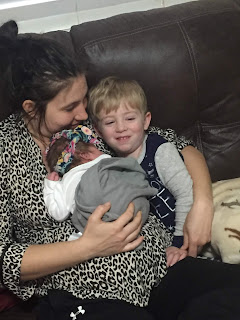Postpartum is Forever
When we talk about postpartum, we talk about the fourth trimester and about immediate post birth concerns. For many of the postpartum period is immediately after having a baby for maybe the first three or six months. However from a physiological standpoint and a mental standpoint postpartum is forever.
Our bodies change in dramatic way is when we have a baby. Immediately postpartum, women are often surprised how they still look pregnant. It takes time for the uterus to shrink after birth, not to mention time for the bones, muscles and skin to return to “normal.” You may feel like your core is a popped balloon. All the pressure that was helping you generate tension is gone. Your pelvic floor may feel loose, tender, and weak after a vaginal delivery or even a c-section. Over time these improve, especially with the correct exercise and guidance for a pelvic floor PT and a certified pre- and postnatal coach/trainer. It will take longer for you to return than most people initially believe(about a year).
However, our bodies are still changed forever. The core or abdominal wall has stretch during pregnancy and regardless of whether or not we develop diastases recti postpartum or not, women can regain functionality. However, the abdominal wall structure is going to be different. As well, the pelvic floor of women who have been pregnant changes. There was a study done that showed that from the first trimester of pregnancy to the end regardless of mode of birth a woman’s pelvic floor changed post- pregnancy. This means that every woman has a different functionality post-birth. The muscles in our body have stretched to accommodate the baby. The way we move has changed; as well, our posture often changes when we are pregnant and if not fixed, we may get stuck in that posture. When we carry a baby around in our arms, our posture also changes, and if we don’t work to have good posture, we may develop muscle imbalances.
As you can see, Everything about our body has shifted and changed during pregnancy and while it goes back it may never quite go back exactly the same way. This is not to say the changes are negative. For example I found myself as quite a hypertonic (over tense/tight) person prior to and during my first pregnancy but after having a baby I tend to not be quite as hypertonic, so in some ways, my pelvic floor has changed for the better.
In the realm of strange thing having babies does to you here are few things that are completely common and normal. If you are breastfeeding, your body will still be changing until months after weaning. As well, you may find that your pelvic floor or core is weaker/symptoms appear around your periods because of these changes.
We are not just physically different but also mentally. Immediately postpartum we experience mood swings, baby blues, etc. However motherhood changes our lives, priorities and preferences. Women are literal chimeras! Our DNA changes with every pregnancy because our dna and the baby’s mingle. (More here: https://www.google.com/amp/s/aeon.co/amp/essays/microchimerism-how-pregnancy-changes-the-mothers-very-dna)
As you can see, postpartum is truly forever. This has implications to our fitness lives. However, keep in mind that just because our bodies and minds are forever changed, it doesn’t have to be negative. If you experience leaking, diastasis recti, prolapse, or pelvic pain, let me help you find a pelvic floor PT and then help you return to what you love!

Comments
Post a Comment